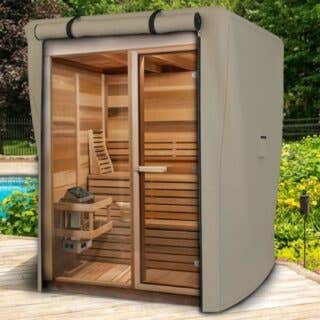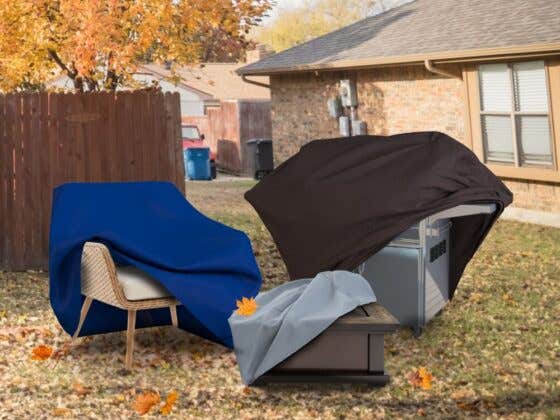Maintaining a garden is a year-round responsibility that you simply can’t neglect. This is especially true in Autumn, a transitional season where preparation for colder weather with the help of is crucial. Ensuring that your garden is in shape for the season is key to the safety and success of your plants in the second half of the year.
Row Coverage

One of the simplest ways to keep your garden protected this Fall and into Winter is utilizing row covers. Weatherproofed, protective textiles such as custom tarps or clear vinyl tarps can be placed above your garden rows to ensure that no strong winds or early-season frosts can cause damage to your plants.
Garden coverings should be set up ahead of any inclement cold weather to ensure that protection is already in place when frost or winds arrive. Remember to remove coverings during the day so the plants can receive some much needed sun.
Remove Dead Plants
One of the first steps to take to protect your garden from fungal diseases this Fall is to pull up any dead or diseased crops out of your beds. If left in the soil, dead plants can spread disease throughout the garden and compromise the health of the surrounding crops. Stop the spread early by uprooting the dead matter and disposing it.
Mulch More

Mulching is an essential practice for keeping your garden healthy and safe throughout the rest of the year. Mulch consists of organic material such as bark, grass clippings, leaves, and pine needles that are compounded together. This composite prevents soil erosion, holds onto moisture, and gives soil much-needed nutrients.
Spread mulch evenly across your garden’s soil in a 3-6 inches deep layer. When next Spring rolls around, you can plant new seeds in the nutrient-rich soil that your mulch helped to protect.
Perfect Pruning
Pruning is a simple task that is essential for keeping your backyard greenery in check. Trees and shrubs that are left unchecked may continue growing to the point of overcrowding the space. As the season progresses and dying branches become more common, add them to the list of necessary prunings.
Plant Hardy Vegetables

While many believe that there aren’t any crops that can survive coldweather, that is not the case for hardy vegetables. Planting sturdy cold climate veggies not only keeps your garden thriving year-round but provides you fresh produce ready to cook in a healthy Fall meal. Hardy crops include:
- Kale
- Broccoli
- Spinach
- Cabbage
- Beets
Last Weeding of the Season

Weeding is a pesky but necessary part of garden maintenance. If left unpulled, weeds can take over your garden before you know it, even in the colder months. Protect your crops by performing regular weedings, making sure to catch every last weed.
If you find Fall weeding to be difficult due to dryer soil, give the ground a good watering beforehand. This will soften the soil and make the weeds easier to extract.
Make Use of Leaves

Fallen leaves can be a nuisance to your Autumn garden. If left untouched, dead leaves can begin to form sodden layers prone to disease. Make the most out of your leaf raking session by removing your equipment covers and feeding dead leaves into a mulching mower. The resulting lead compound can be used for your Fall mulching session.
Maintain Your Garden Accessories
Your crops are not the only part of your garden that need some maintenance this Autumn. Garden tools require upkeep in order to maintain their integrity throughout the colder seasons.
Inspect your garden accessories and perform any necessary upkeep. This could range from basic cleaning with soap and warm water to a soak in water and vinegar before scrubbing with steel wool to remove rust. And remember to properly store your tools in storage bags indoors or in a shed. Leaving them exposed to the elements is the quickest way to ruin them.
Hold Back on Fertilizing
While fertilizing should be at the top of your priority list for gardening in Spring and Summer, it takes a backseat in the cooler months. Your focus for Fall and Winter should be to preserve your garden as opposed to encouraging growth, so keeping fertilization to a minimum is the ideal way to maintain that goal.
Water Less
It may seem counterintuitive to common gardening sense, but watering less at this time of year will help keep your garden healthy. As we get closer to Winter, soil becomes significantly more moist thanks to cool weather precipitation. Watering on top of this can cause excess moisture which will damage the roots. Water only as necessary and your garden will be in good shape for the Autumn.

















Recent Comments